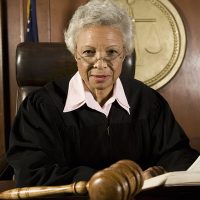Questions Of Law And Questions Of Fact In Florida Criminal Cases

Yes and no questions are not always as simple as they sound. Sometimes, in order to arrive at the correct answer, you must consider all the information that is relevant to your decision and ignore all irrelevant information, and sometimes figuring out which information is relevant is more difficult than it sounds. Think about all the times when you were filling out a form online, and it asked you to click yes or no, but you had to turn off the TV and carefully reread the question several times before you could be sure of your answer. Now imagine that someone would go to prison or go free based on your yes or no answer, and you will understand why judges and lawyers have such a herculean task in determining what a jury does and does not hear during a criminal trial. A Tampa criminal defense lawyer can help you get a favorable outcome in the questions of law, which judges decide, so that your case can result in a fair verdict from the jury.
Decisions That Judges Must Make Before the Jury Can Return a Fair Verdict
The questions that juries must answer in criminal trials are called questions of fact. They must base their decisions entirely on evidence presented to them at the trial. These are examples of questions of fact that juries must answer at a trial:
- Did the defendant engage in the actions that the prosecution alleges (such as removing property that belonged to someone else or punching and kicking the alleged victim)?
- If yes, do the circumstances surrounding the actions make the actions fit the definition of the crime (for example, it is only theft if the defendant did not have the legal owner’s permission to remove the property, and it is only assault if the defendant was not acting in self-defense)?
- Does the evidence presented during the trial leave room for reasonable doubt about the defendant’s guilt?
Before the jury can answer these questions, the judge must answer questions of law, such as the following:
- Did the police have probable cause to obtain an arrest warrant or to arrest the defendant without a warrant?
- Is this piece of evidence relevant to the case?
- Is this extension of time that the prosecution is requesting justifiable, or is it an unnecessary delay that violates the defendant’s right to a speedy trial?
- Can this prospective juror make an unbiased decision about this case?
Sometimes, by persuading the judge of certain questions of law, it is possible to get the court to dismiss your case even before it gets to the trial phase. Your criminal defense lawyer can help you understand the questions of law and questions of fact that relate to your case.
Contact Tampa Criminal Defense Attorney Bryant Scriven
A criminal defense lawyer can help you present your case at a fair trial or resolve your case without the need for a trial. Contact Scriven Law in Tampa, Florida to schedule a consultation.
Source:
law.cornell.edu/wex/question_of_fact
